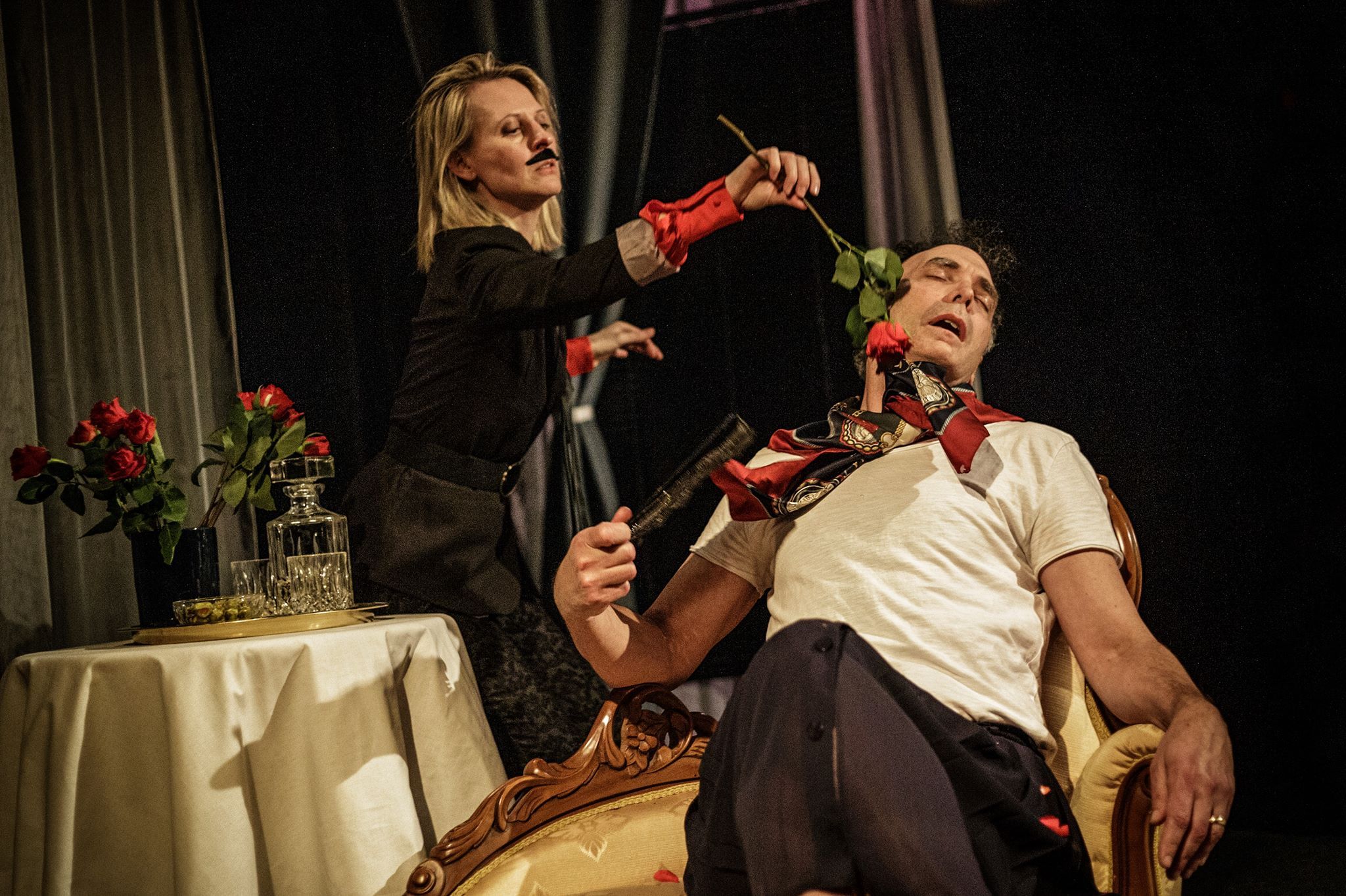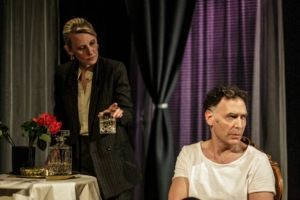Down The Rabbit Hole’s production of Harold Pinter’s ‘The Lover’, ostensibly a one-act exploration of marital infidelity, was introduced by director Jeremy Thomas-Poulsen with a heads-up that the group had gender-swapped the leads.
This announcement may have been the result of some insecurity surrounding that decision, but if indeed this was the case, Thomas-Poulsen needn’t have worried. Despite any concerns of gimmickry, the decision bares fruit almost immediately.
It’s clear that had the text been played as it was originally intended, the sexual politics are now so antiquated that their expression risked a contextual quaintness, losing any bite or relevance to a contemporary theatre audience.
Contradictions cancelled out
Tom Hale’s Richard, originally the part intended as female, maintains his home while his wife Sarah, played by Jana Pulkrabek, works in the city. He openly entertains a lover during the afternoons – a practice of which his wife is supposedly accepting. She herself is regularly serviced by a ‘man-whore’ in the city.
Initially a skirt-wearing Hale appears to ‘camp’ up his role, with effeminate titters, movements and gestures, leading one to wonder if this is someone’s idea of female behaviour or someone’s take on house husbandry.
That soon stops though when he is told, by his suit-wearing wife, to change his shoes. The saving grace of the gender swap is that there are multiple indicators of sex and sexuality, such as these, and many contradict each other, so as to ultimately cancel one another out.
Abandon all preconceptions
At first, the gender disorientation is dizzying, to the extent that one feels the need to mentally return the roles, periodically, to their original gender, simply to get one’s bearings.
Soon, however, the prevailing instinct is to abandon any preconceptions related to gender and proceed by engaging with the couple’s behaviour on a purely human level, without assigning sex to character.
This is where the play takes flight because observations on human nature feel as though they have considerably more value when not mired in sexual politics of any particular age.
Caught between the constructs
Richard and Sarah are caught between the moral constructs of our Christian culture and mental constructs of their own making – the sort we build to cut us off from our empathy, thus freeing us from our guilt, so that we may indulge desires, the likes of which we aren’t comfortable in granting for our significant other.
Such moral and mental constructs are indeed without gender, and while they don’t always prohibit our pleasure, they ensure the pleasure isn’t entirely guilt-free.
Fortunately while all this is played out, there is also much fun to be had. Hale and Pulkrabek clearly enjoy their scenes of seduction, brilliantly aided by the use of a set of hand drums – a prop that retains its significance later on.
These are the best scenes, with some earlier (perhaps first night) foibles giving way to more confident strides from both performers.
Preconceptions and prejudice
Of course, Pinter’s delight comes in his deception of the audience, to expose their preconceptions and prejudices.
Here too, all is not as it seems, and the final note seems to be recognition that the thrill of an affair is entirely lost when permission is granted.
Perhaps, the play suggests, the only way to rescue marriage from the march of time and the monotony of routine is to somehow render it more illicit than an affair.


















